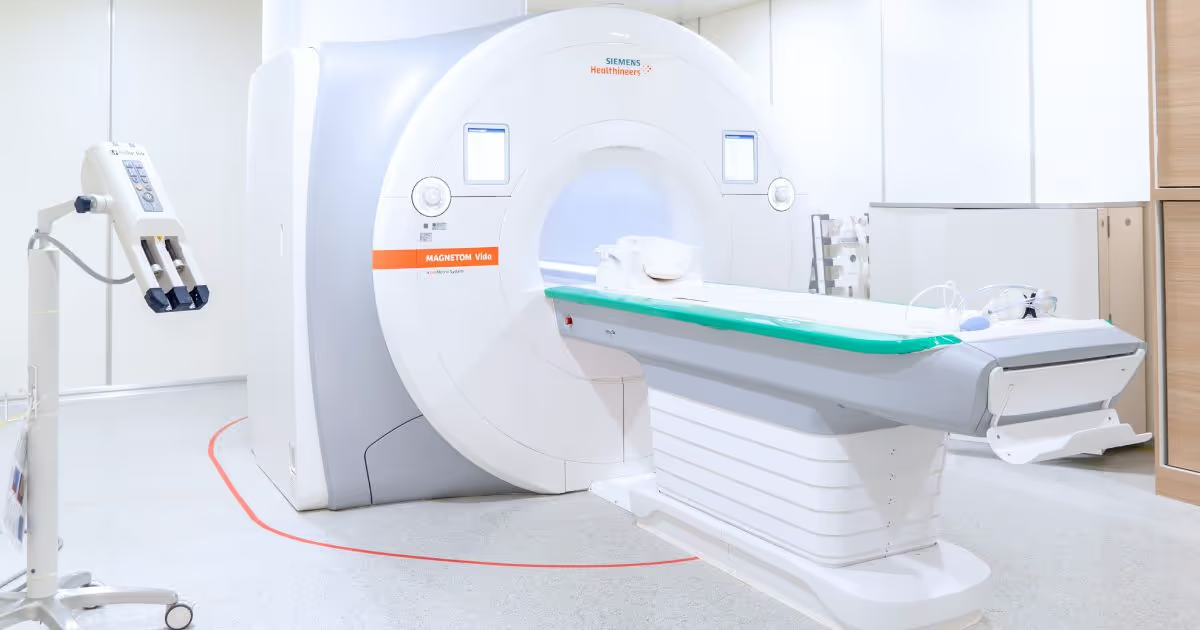Choose the content to read
- What is a Cardiac MRI?
- What can cardiac MRI diagnose?
- Why is a cardiac MRI ordered?
- What are the steps involved in cardiac MRI?
- Note from MedPark’s Doctors
- Assess Your Heart Health Risk - Free!
What is a Cardiac MRI?
Cardiac MRI (Cardiovascular MRI) is an imaging modality using strong magnetic fields and radio waves to create detailed cardiac images. It is beneficial for assessing problems within the heart chambers, heart muscle, heart valves, and blood flow through the heart. Cardiac MRI is a safe, painless, and non-invasive procedure.
What can cardiac MRI diagnose?
Cardiac MRI is beneficial in diagnosing a variety of heart conditions, including:
- Chest pain
- Aortic aneurysm, dissection, or rupture
- Congenital heart defects, including the effectiveness of prior heart surgery.
- Pericarditis and constrictive pericarditis
- Heart muscle diseases, such as tumors, heart failure, and cardiomyopathy
- Ischemic heart disease
- Myocarditis
- Heart valve diseases, such as stenosis or regurgitation
Why is a cardiac MRI ordered?
Doctors may order cardiac MRI to:
- Assess damage to the heart after a heart attack or identify areas of the heart that are not getting enough blood flow due to a blocked coronary artery.
- Identify the location for cardiac ablation.
- Plan or assess the effectiveness of heart treatment.
What are the steps involved in cardiac MRI?
Before the procedure:
Patients should tell their doctor if they are pregnant or think they might be pregnant, have a pacemaker, an IUD, or other implanted medical devices, or if they have any other medical conditions. Patients should also bring a friend or family member to drive them home after the procedure. Claustrophobic patients should inform their doctor in advance so that the doctor can arrange for sedation.
During the procedure:
Patients will lie on a table that slides into the MRI machine. The doctor may inject a contrast agent through a vein to improve the image quality of the heart tissue and blood vessels. While the machine transmits radio waves to the chest, patients should lie still to ensure clear images. The procedure takes about 30-90 minutes. Patients can communicate with the radiologist in another room through a microphone during the imaging procedure.
After the procedure:
- Patients will have an appointment to discuss the results of the procedure.
- Typically, patients can return to their normal activities after the procedure. Patients who get the contrast agents may feel a bitter taste. Some patients may feel nauseous or dizzy. Patients who receive sedation may feel tired until the medication wears off.
- If you have any symptoms of a heart condition, see a doctor immediately.
Note from MedPark’s Doctors
Cardiac MRI is a valuable tool that can provide detailed and accurate images of the heart without surgery or radiation. However, lying still during the procedure is essential to ensure clear images.








